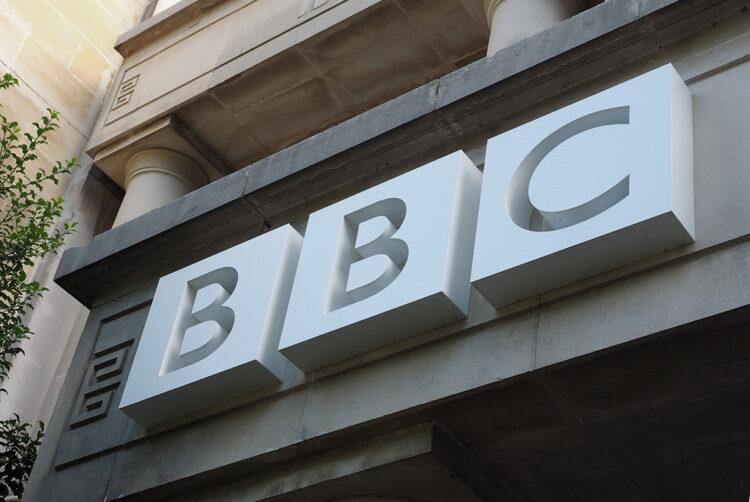Opinion
The BBC Mid-Term Review once again brings up discussions of impartiality and objectivity — but the culture secretary should be reminded that perception of bias is not the same as the real thing.
There is an underlying flawed concept at the heart of the government’s BBC Mid-Term Review. It is that the journalism of the BBC has major problems with both impartiality and bias.
On closer examination, what concerns the government and culture secretary Lucy Frazer is neither impartiality nor bias, but public perceptions of bias and a lack of impartiality.
“Impartiality continues to be an ongoing issue for audiences, with concerns about the broadcaster’s objectivity making up the majority of complaints about the BBC’s editorial content,” the review says, adding that it wants “to help the BBC to tackle perceptions of bias”.
There is an obvious problem with this approach. Perception of bias is not the same as the real thing.
Clichés are usually based on truth and “perception being in the eye of the beholder” is a particularly useful concept here.
Whose perception? Whose bias?
Inconsistent views
Historic studies have found little evidence of institutional bias in the output of the BBC. It is well-known that many viewers with right-wing opinions believe the BBC is a leftist organisation, while socialists know for sure that the BBC is little more than a Conservative conspiracy.
On top of such inconsistent views, there is the notorious difficulty of defining impartiality.
Frazer, barrister and King’s Counsel, trundled around the broadcasting studios on Monday, trailing her flawed concept of perceptions.
On the Today programme, Amol Rajan asked for examples of BBC bias and she came up with the story of the bombing of a Gaza hospital that turned out to be the result of a misfiring Hamas rocket rather than an Israeli bomb.
It was not an example of bias but an error by a reporter carrying early speculation too far — and the BBC was not alone that day. There was a correction and an apology.
Frazer dug her hole a little deeper by expressing surprise at how different BBC news outlets were covering her review differently — obviously unaware that different programmes have different editors, reporters and styles.
Things got much worse for Frazer when she encountered Kay Burley of Sky News.
The presenter asked her the straightforward question: “Do you think the BBC is biased?” Frazer spluttered about looking at the issue from her point of view while Burley noted that was why she had been asked to appear.
Burley persisted and asked for evidence of BBC bias. As The Guardian’s political sketch writer John Crace mercilessly reported: “Frazer looked confused. Startled even. ‘Evi… Evi… Evi… dense? What was that? Yup, she’s a lawyer alright. Er… the evidence was that some people perceived the BBC to be biased.”
The perception fallacy again.
Burley had to remind a KC that perceptions were not the same as evidence. Would she even have thought of suggesting to a judge that there was a perception that the accused was guilty?
More Ofcom powers
The “substance” of the review is more than a little underwhelming.
Oversight of parts of the BBC online public services will move to media regulator Ofcom. There is also a vague promise to give Ofcom a new legally binding responsibility to review more of the BBC’s decisions on complaints.
More worryingly, the culture secretary is making the BBC board responsible for the running of the complaints process. When the BBC governors, and now the board, has got involved in detailed editorial matters, it has rarely ended well.
There is also a veiled threat to end the BBC’s ability to deal with its own complaints after 2027 and presumably add yet more regulatory responsibilities to Ofcom.
The way things are going, Ofcom could one day end up in the Guinness World Records book as the world’s largest communications regulator.
There are a few useful grains in the review. The BBC should indeed be more open about how it handles complaints and much better at explaining the principles on which decisions are made.
There are genuine concerns by local newspapers and commercial radio about what they see as encroachment by the BBC into their markets.
The government wants to see “greater meaningful engagement” between the BBC and its competitors and, yes, more work for Ofcom. It should publish an annual high-level view on the BBC’s position in the local news sector, as it does for other sectors, “to provide further clarity”.
View from the right
And how did the right-wing press cover the Mid-Term Review?
No need for perceptions here — just familiar, anti-BBC bias.
“Crackdown on bias at the Beeb” was the headline over The Sun’s story, which read: “The BBC faces a government crackdown amid public fury at rampant bias.”
In its comment section, The Sun Says, the approach was even more strident: “While 130 people a week are prosecuted in secret courts for not paying their licence fees, the BBC relentlessly shoves leftie content down viewers’ throats.
“Culture Secretary Lucy Frazer says she will end the overt bias at the Beeb. We can only hope she succeeds.”
Meanwhile, whether at The Sun or the culture department, presumably the search for evidence of bias — rather than mere perception of it — will be stepped up.
 Raymond Snoddy is a media consultant, national newspaper columnist and former presenter of NewsWatch on BBC News. He writes for The Media Leader on Wednesdays — read his column here.
Raymond Snoddy is a media consultant, national newspaper columnist and former presenter of NewsWatch on BBC News. He writes for The Media Leader on Wednesdays — read his column here.






 Raymond Snoddy is a media consultant, national newspaper columnist and former presenter of NewsWatch on BBC News. He writes for The Media Leader on Wednesdays —
Raymond Snoddy is a media consultant, national newspaper columnist and former presenter of NewsWatch on BBC News. He writes for The Media Leader on Wednesdays —